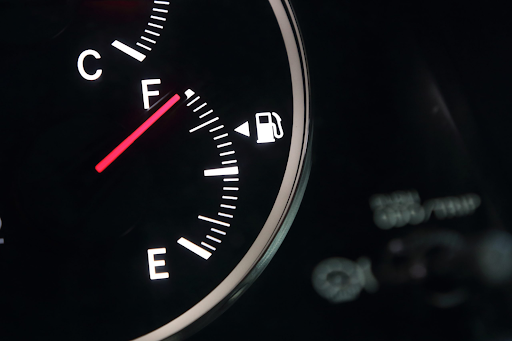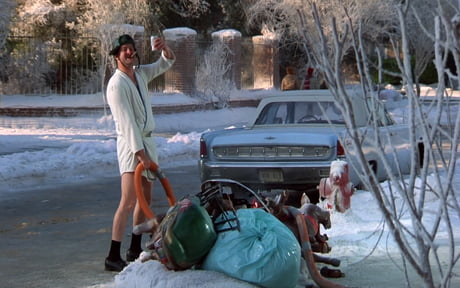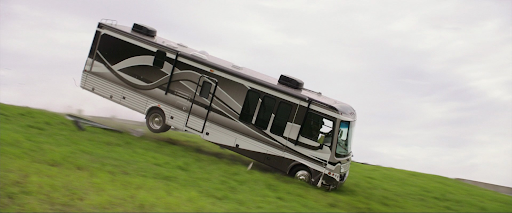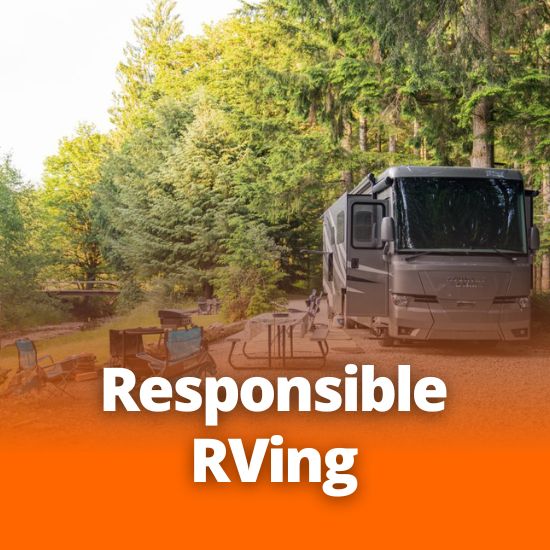
Responsible RVing
Sadly, there is a bit of a negative stigma to RVers. Look no further than some pop culture examples:
Cousin Eddie dumping his black tank into the open storm drain in National Lampoon’s Christmas Vacation.
David pushing the loading and towing limits of his rented RV full of the devil’s lettuce in We’re the Millers, or Kenny (the unlicensed driver) sending it careening down a hill. Although, David is partially responsible for this one too (with the help of a tarantula…watch the movie).
And that’s just off the top of my head! There are plenty of ways RVers are seen as irresponsible, but here are some ways you can prove people wrong!
Some are obvious: be a safe driver, following the speed limit (or slightly under), signaling, obeying traffic laws. And dumping your tanks in designated dump sites.
But it’s more than just manners, many consider RVing to be anti-environmentally friendly and that just isn’t the case. In fact, full-timers you’re actually using less energy than you would in a house!
1. Pet Ownership
Something many people forget is controlling their pet. It’s not only safer for the wildlife and environment, but your furry friend too. I do not care how good their recall is. Keep them on a leash. A buck can crush a skull easily, your dog (or cat) can eat something they shouldn’t, and of course, clean up their waste and take it with you. Do not leave a bag of garbage or poop on the ground!
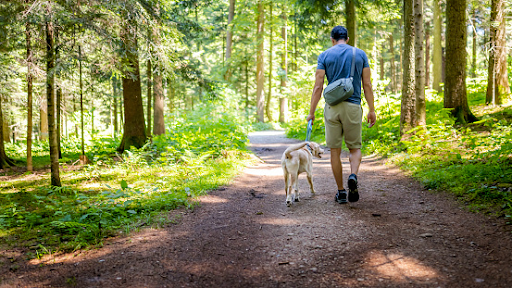
No Bull Tip! Want to be eco friendly? You can get biodegradable waste bags which will break down faster over time than plastic ones
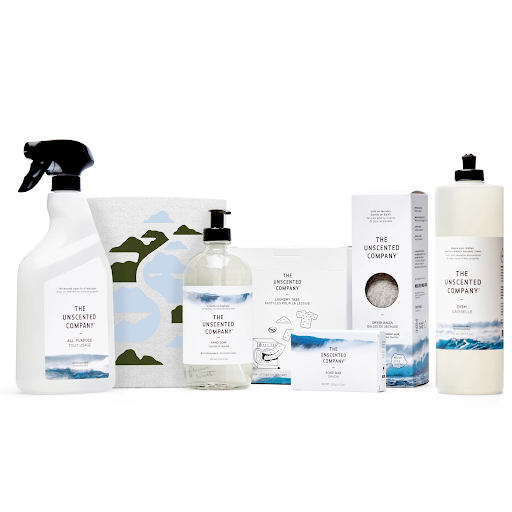
No Bull Tip! Washing dishes outside? Do it at least 200-ft away from natural water sources, and do not wash anything (including yourself) in lakes, rivers or streams!
2. Cleaning Products
There are lots of environmentally-friendly products out there for you to use. Clean, biodegradable dish soap, shampoos, body wash, and even natural tank deodorizers. Look for paraben-free, vegan, and phosphate-free products that won’t be toxic to the environment. One line to try is the Unscented Company, they’re even Canadian owned!
3. Fire Safety
We’ve got a whole post on campfire safety here but to quickly sum up:
- Choose an appropriate site
- Prepare your fire with the proper gear
- Do not leave it unattended
- Extinguish safely and completely!
- We’ve got fire extinguisher basics here if you want to be extra safe
- Be aware of any fire bans in your area
And if you want a refresh on wildfire safety, you can read that here.
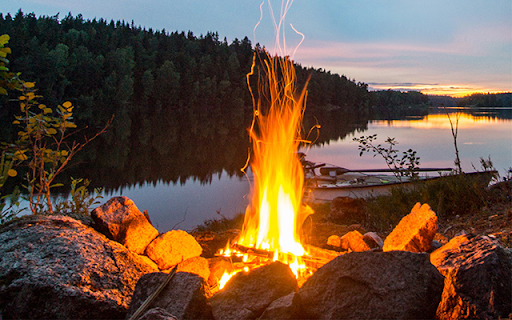
4. Leave No Trace
I mean, this is old hat now (but just in case, we’ll nudge you here).
So remember:
- Leave your campsite cleaner than you found it
- Pick a campsite that has already been occupied to reduce your impact on the area
- Abide by any closures or prohibited areas
5. Protect Plant Life
Coming off of that, camp and walk on durable surfaces like determined pathways to help conserve the natural habit around you. Literally, follow the beaten path (ha!). Most Canadian park trails are home in unique forest environments, with a diverse selection of plants that you should avoid crushing or picking. So don’t go making any flower crowns or bouquets!
6. Avoid Single Use Plastics
This one can be tricky, but we know how harmful single use items can be, and RV trips can have them stacking up fast. Try and use reusable water bottles, cloth grocery bags, and tupperware. You can invest in a water purifier for drinking instead of bottled water too!
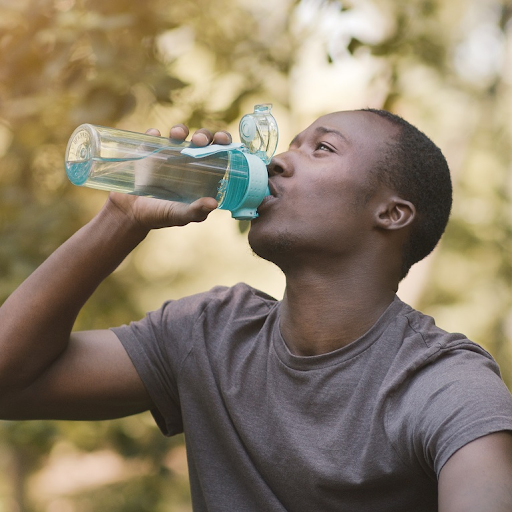
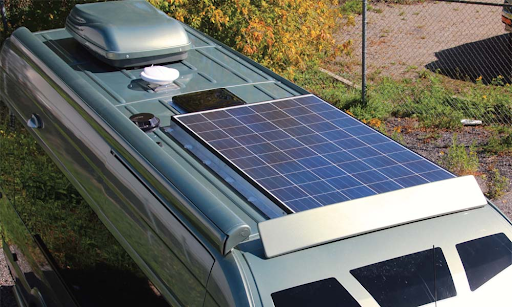
7. Be Energy Conscious
This can look like shorter showers, open windows instead of running the A/C, and turning off unnecessary lights. You can also install solar panels to help keep your batteries charged, so you won’t rely as much on generators or campsite hook-ups. Which means it works as a natural source of energy, and can lower your bill for a campsite with fewer hook-ups.
8. Fuel Efficiency
There are a few ways to get better gas mileage (get bang for your buck and reduce emissions):
- Check tire pressure regularly
- Maintain a steady speed
- Follow towing/loading guidelines; loading your RV to keep it balanced
- Minimizing idling
Plan your route to reduce the amount of driving necessary and, if you’re doing some exploring during a stop, looking for places to park and walk, bike, or take public transit to get around instead of driving!
Would you add anything to our list for responsible RVing?
